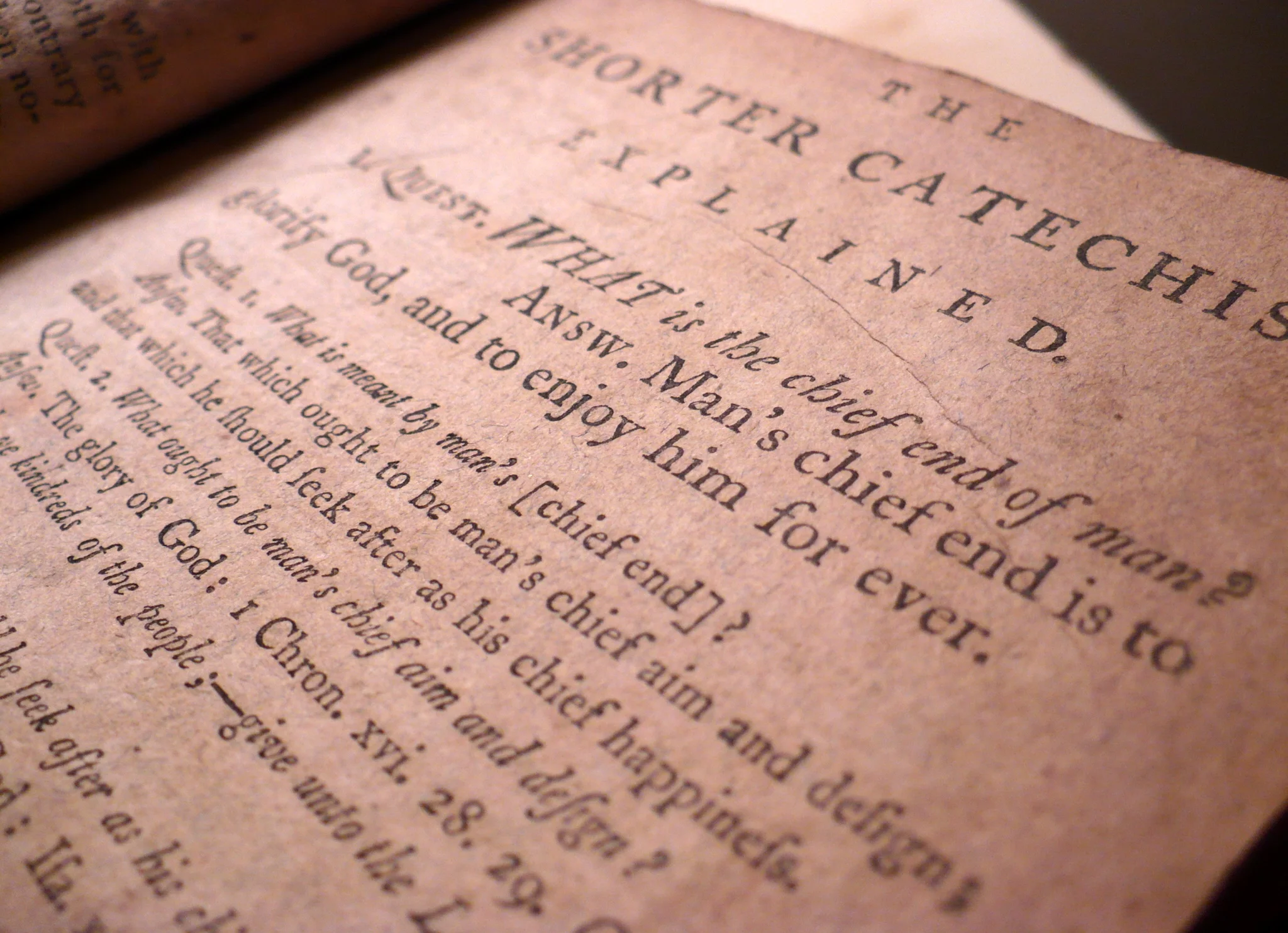When I began discipling new believers I found myself at a loss of what to do. I knew that I should spend time with them and read the Bible with them, but I didn’t know what to teach them. What do they need to know? What should I try to pass on to them? I embarked on a journey to learn the answers to these questions and I discovered the lost art of the catechism. In past generations the church produced and used documents called catechisms in order to train people in Christian faith. The word itself comes from the greek katecheo and is found in Galatians 6 among other places in the New Testament:
“One who is taught (katecheo) the word must share all good things with the one who teaches (katecheo).”
As I studied the famous catechisms I noticed something interesting. Nearly every catechism ever made covers the same four subjects: the Apostle’s Creed, the Ten Commandments, the Lord’s Prayer, and the Sacraments. The church has traditionally believed that if one understands these four things, one understands the whole of Christian faith. This surprised me primarily because no one had ever really emphasized these things in my life. Why these four things?
The Apostle’s Creed – The Heidelberg Catechism calls the Apostle’s Creed “the gospel summarized”. It is the confession of faith. It sums up everything that we should believe in order to be saved. It is Trinitarian in structure, explaining all who God is and all that he does for us. When asked “what is the gospel?” I would shamelessly reply “the articles confessed in the Apostle’s Creed.” If this is true then there is good reason to understand and teach this ancient confession as a guide to Christian doctrine.
The Ten Commandments – The Ten Commandments simultaneously accomplish two things in Christian training. First they reveal our sin so that we might repent more intelligently. We all know that we have failed to love God and neighbor, but the commandments tell us exactly how we have failed. They serve as a tutor to convince us that we are “sinful beyond measure” and to lead us toward Christ our redeemer. But they also function as a sure guide to Christian ethics. In other words, they teach us how we should live and reveal the direction of our sanctification. As we repent of sin, trust Christ, and become filled with his Spirit we begin to obey these very commands from the heart. We must not despise the teaching of the Ten Commandments in our discipling efforts.
The Lord’s Prayer – The whole book of Psalms is contained and summed up in the Lord’s Prayer. It is a most precious gem of Christian faith and devotion. The Lord’s Prayer teaches us what God has promised to give, what we should ask him to give, and what we should expect him to give. As we pray according to the petitions that Jesus gives us we are claiming the promises of God in his name. God the Father will surely answer the prayer of his Son.
The Sacraments – Baptism and communion teach us the rituals of Christian initiation and Christian growth. They signify justification and sanctification. Baptism is the way into the life of faith. Communion is the act of celebrating and sustaining the life of faith. Both are rooted in the hearing of the gospel and repentance.
Some have noticed that in covering these four things the traditional catechisms holistically impart devotional, intellectual, and ethical Christianity. Catechisms teach us to love God with all of our heart, mind, and strength and our neighbor as ourselves. We must understand the gospel as it is summarized in the confession of faith. We must celebrate the gospel with prayer and sacrament. We must also obey the gospel with the spiritual sacrifice of a holy life. Every Christian can and should participate in the work of discipling others. As we do this, let’s learn from our fathers by referring to the catechisms of the past and possibly developing new ones that suit our time and need.


